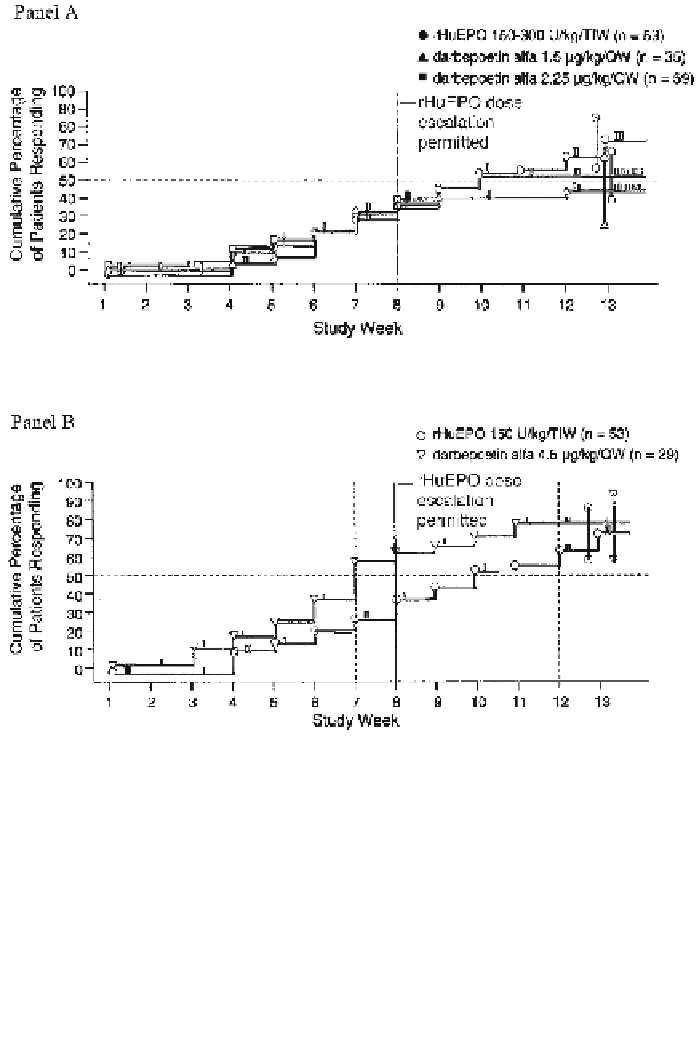Biology Reference
In-Depth Information
Figure 2. Panel A: The time to response data for darbepoetin alfa given weekly at doses of 1.5 or
2.25 µg/kg and for epoetin alfa given three times weekly at a dose of 150 U/kg, with a dose increase
to 300 µg/kg after eight weeks in non-responding patients. When data are analyzed using an intent-
to-treat approach to missing data points and all hemoglobin values within four weeks of a red cell
transfusion are replaced with the imputed pretransfusion hemoglobin (eliminating the effects of trans-
fused red blood cells on outcomes) it is apparent that with current dosing, the median time to response
to erythropoietic therapy is approximately 10 weeks. Adapted from [75]. Panel B: The time to
response data for darbepoetin alfa given weekly at a dose of 4.5µg/kg and for epoetin alfa given three
times weekly at a dose of 150 U/kg, with a dose increase to 300 µg/kg after eight weeks in non-
responding patients. When data are analyzed using an intent-to-treat approach to missing data points
and all hemoglobin values within four weeks of a red cell transfusion are replaced with the imputed
pretransfusion hemoglobin values, the response to higher doses of an erythropoietic agent is signifi-
cantly faster. Adapted from [75].
response to erythropoietic agents. In that setting, iron replacement is impor-
tant, and the introduction of safer parenteral preparations has been associated
with an increase in the routine use of parenteral iron in conjunction with ery-





